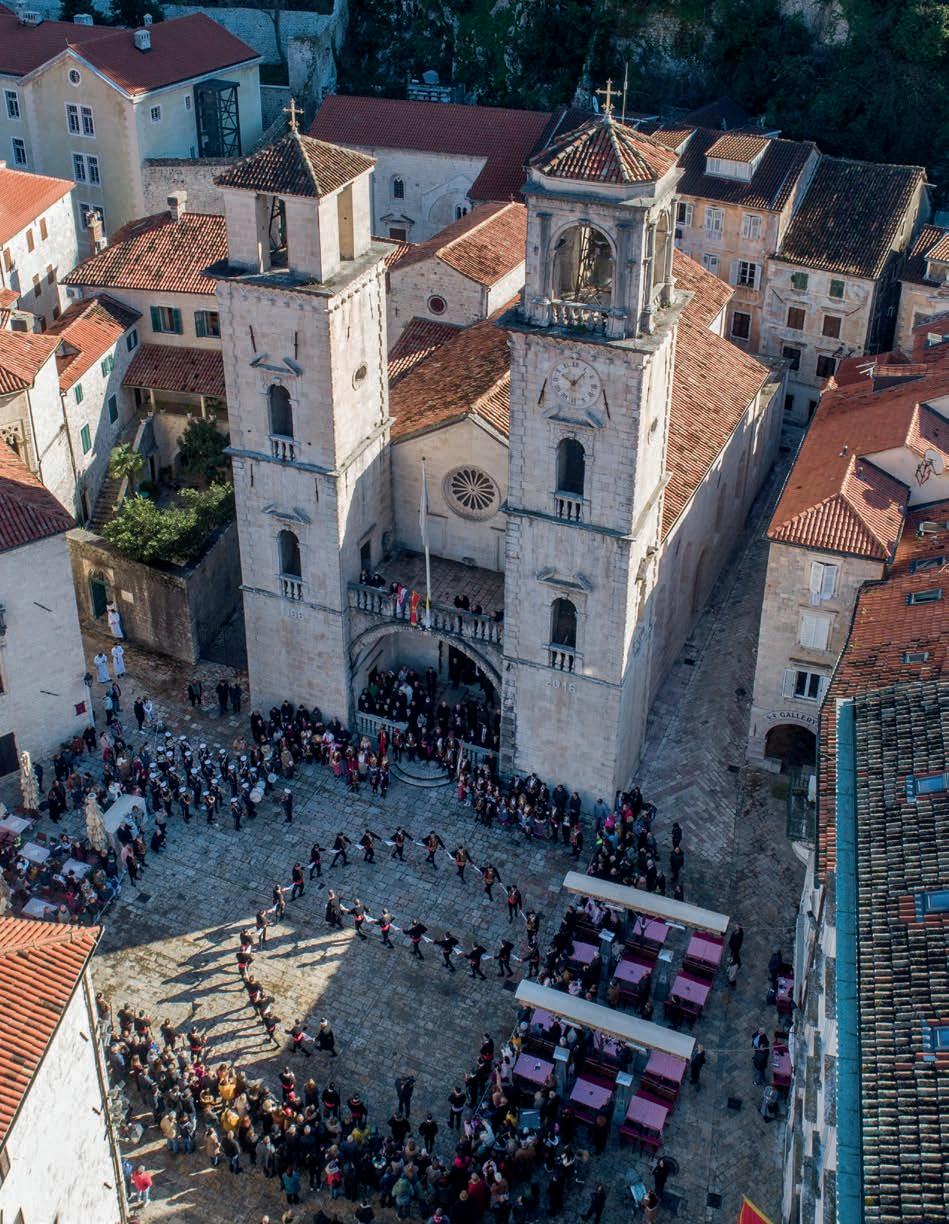
4 minute read
Montenegro’s Maritime
from Luštica Bay LIFE
by Lustica Bay
MONTENEGRO’S Maritime Marvel! A TRUE EXAMPLE OF THE POWER OF TRADITION AND A LEGACY THAT SPANS A MILLENNIA
Founded over 1000 years ago, making it the oldest maritime organisation in existence, The Navy, has survived a millennia of tumultuous, unpredictable and often-times violent world history that saw empires rise and fall, two world wars, the first flight of man, humanity’s first steps into space and the birth of the internet. The Boka Navy, today, stands as testament to the importance of shared ideals, cultural identity and spiritual value. In the present day, the Navy serves a ceremonial purpose - a living reminder of the rich maritime history of the Nation in which it was founded, and strives to keep alive the traditions and history of the seafarers, merchants and sailors who lived and sailed the coast of the Adriatic Sea.
Advertisement
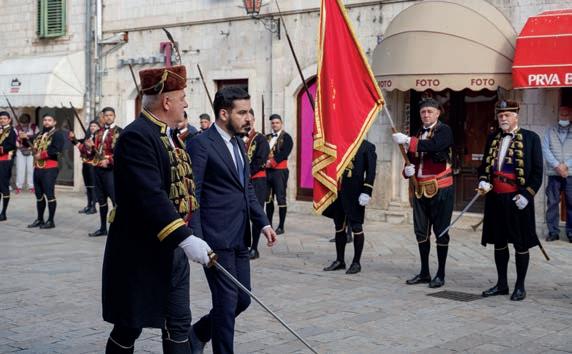
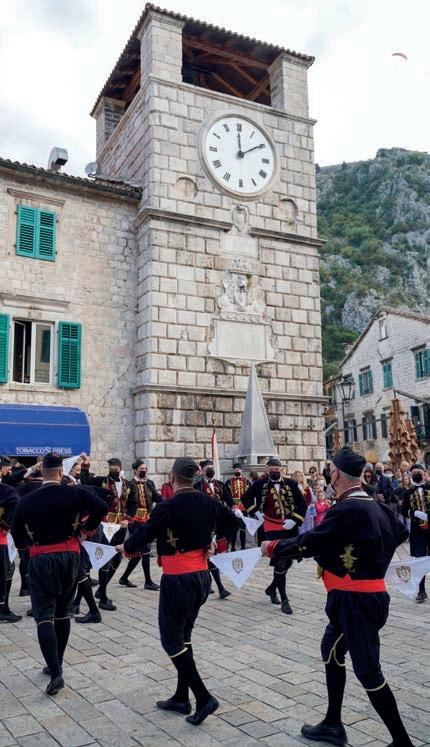
TO BEGIN AT THE BEGINNING
At its conception in 809, the Navy was a collaboration of seafarers, merchants and ship owners, and served a multitude of purposes that ranged from military to economic and even humanitarian. Founded on the tenets of human rights and a respect for religious, cultural and national diversity, the navy looked after the interests of it’s members - offering education, assistance to poor families, care for the widows and orphans of those members who passed away and even went as far as paying the ransoms of members who fell foul of piracy. During times of war the Boka navy took responsibility for the defence of the bay and the Southern Adriatic coast - often times sailing alongside the Venetian Navy against the Ottoman Empire and local pirates. One particularly inspiring account of the navy’s courage and dedication came during the naval battle of Lepanto in 1571, when the Kotor Galley of St Tryphon fought single-handedly against four Turkish galleys. While the captain and all crew were eventually killed, they inflicted heavy losses on the Turkish sailors that eventually led to the defeat of the Turkish fleet. It is stories such as these that helped to cement the Boka Navy’s reputation as not only skilled seamen and renowned traders, but ferocious and gallant warriors.
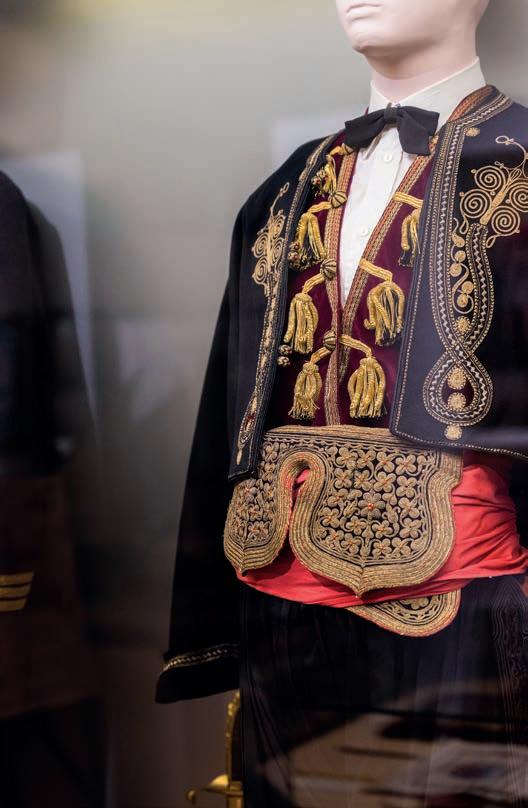
THE NAVY OF TODAY
Now recognised on the UNESCO ‘List of the Intangible Cultural Heritage of Humanity’ the Boka Navy operates in a purely ceremonial role - performing in various celebrations throughout the year and standing as a reminder of the rich tapestry of maritime history in the Boka region - a history that has shaped and developed a unique culture and identity among those who live along the shores of Boka Bay.
Maritime affairs have historically been of decisive importance to the city of Kotor and Boka Bay itself - a fact that can be seen in the traditional Kolo Circle Dance - a dance that demonstrates 12 complex figures, each representing a different spiritual and maritime symbol. It is believed this dance was first performed by Kotor sailors on January 13th , 809, after they received the relics of the martyr St. Tryphon - who became the Patron Saint of Kotor and later built a Romanesque cathedral in Kotor’s main square. The Kolo Circle is performed only by male members of the active component of the Boka Navy. The men are adorned in the traditional Navy uniforms - black jackets trimmed with fantastic gold and red patterns - and is danced to traditional Kotor music.
The dance itself can be seen during the Festival of St. Tryphon, that occurs in early February and includes a procession through the streets - carrying the relics of St Tryphon - through the main squares of Kotors old town, followed by religious rituals at Katedrala Svetog Tripuna - The Cathedral of St. Tryphon.
KEEPING TRADITIONS ALIVE
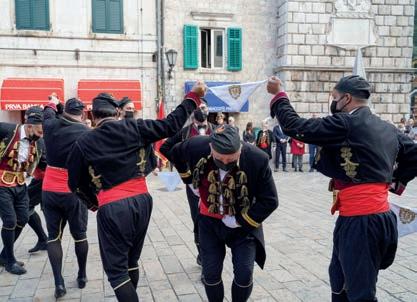
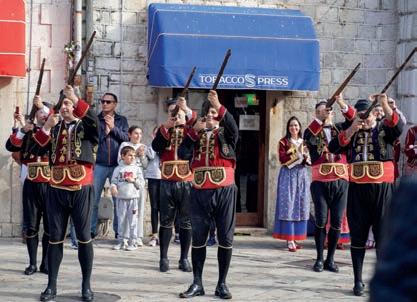
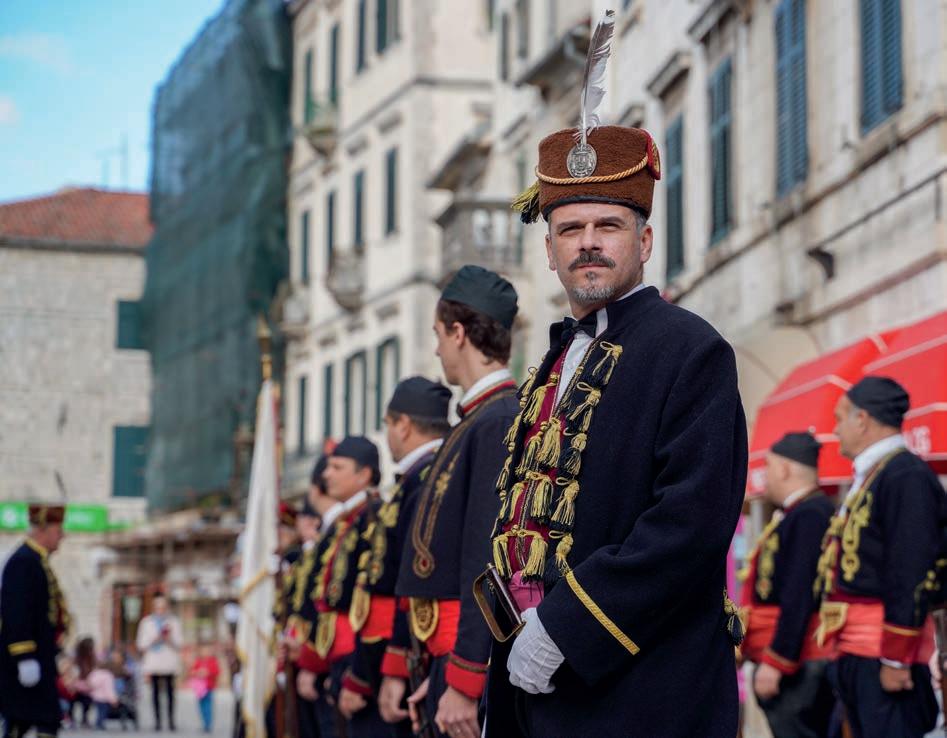
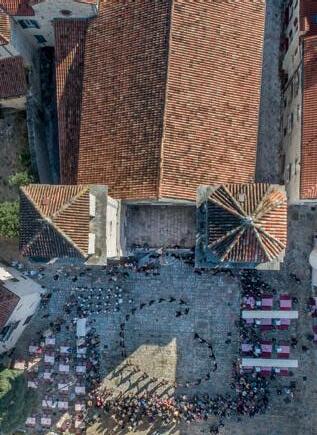
ALL EYE’S TO THE FUTURE
Due to it’s rich, complex heritage and significance to the local people and culture, the Boka Navy is undoubtedly one of the most important pieces of world, European and especially Montenegrin history. A demonstration of the strength and importance of shared ideals, camaraderie and dedication to the betterment of oneself and others. It’s representation in the UNESCO ‘List of the Intangible Cultural Heritage of Humanity’ is proof of it’s cultural and historical importance and as the Admiral of the Navy himself, Antun Sbutega says, “I am convinced that this will also enrich the world because they will get to know one of the most ancient and unique institutions, witness the protagonist of 12 centuries of Adriatic and Mediterranean history, which has managed to accumulate, preserve and valorize a host of important cultural values.” It is the hope of all involved that the story of the Boka Navy will be heard by the world and the values for which it stands will continue to enrich the lives of those who share in them.










